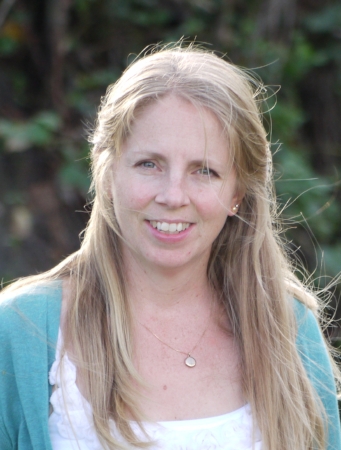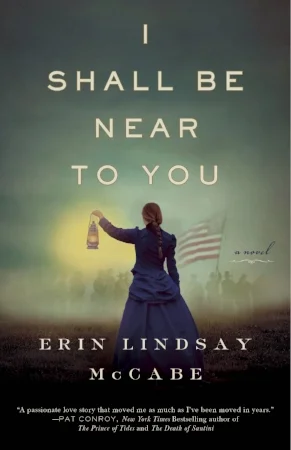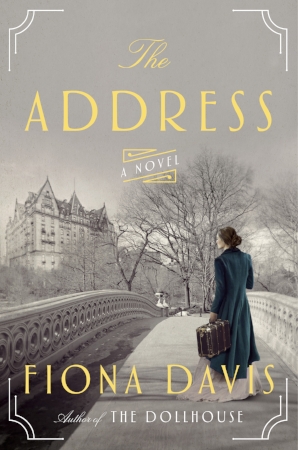WomensHistoryReads interview: Erin Lindsay McCabe
It feels fitting to wrap up the first month of #WomensHistoryReads interviews (that's right, it's not over!) with Erin Lindsay McCabe, one of the first authors I bonded with over our love for telling women's untold stories from history. Erin also hosts the quarterly Twitterchat #HistoricalFix, which is one of my favorite ways to spend time on Twitter. If you love Twitterchats, keep an eye out in April for #WomensHistoryReads to follow in #HistoricalFix's footsteps...
Erin Lindsay McCabe
Greer: If you could pick one woman from history to put in every high school history textbook, who would it be?
Erin: This is such an impossible question for me, because I really want to answer ALL OF THEM. But because I'm biased, I'm going to say I'd love to see Sarah Rosetta Wakeman in every history book and the reason why is because she -- along with many of the other female Civil War soldiers -- was an ordinary woman who served our country in a way that women were not supposed to, and she served in our military with complete equality. But she did it, not to prove a point or to make history, but because it was something she wanted to do. I would have been so inspired by her story as a kid -- because the way I was taught history pretty much made it seem like hardly any women were ever on the frontlines of any of our country's history, like they weren't taking active roles in shaping our country, and that's just not true.
Greer: What do you find most challenging or most exciting about researching historical women?
Erin: What I find most challenging is also what I find most exciting, which is that there is often so little in the historical record about women. I always want my research to be as accurate as possible, so that no one can discount the truth of the story I'm telling just because I got some historical detail wrong. But because women are so often absent from history, it can make hunting down accurate information about their lives incredibly difficult, an idea that Jill Lepore explores really beautifully in her non-fiction book about Jane Franklin, The Book of Ages. Luckly, being a fiction writer, those same gaps -- the questions the historical record will probably never be able to adequately answer --are what spur my imagination and give me the space I need to imagine. But it's also incredibly thrilling when I uncover some little historical tidbit that unlocks a woman's past and places her where I had only imagined she might have been or clarifies what she might have done.
Greer: Play matchmaker: what unsung woman from history would you most like to read a book about, and who should write it?
Erin: I would love to read a novel about Sor Juana Inez de la Cruz. In college I read her letters to the bishop who had ordered her books be taken away, and she just astounded me. Her ideas, her passionate argument for women's rights, seemed so modern. I feel like maybe Isabel Allende could get the historical and cultural details right, and that her playfulness could bring Sor Juana's passion and anger at injustice and misuse of power to light in a way that would be deep without being too heavy, that would render Sor Juana in a complex and sympathetic way.
Greer: I'm in.
Erin: And my question for you is: In each of your novels, you've told stories about women who have taken on one form of disguise or another (a magician who deals with illusions in The Magician's Lie, a spy in Girl in Disguise, and a young woman feigning insanity in your forthcoming book Woman Ninety-Nine). What is it you find so compelling about women who take on alternate identities in order to create opportunities for themselves?
Greer: I've always loved the idea of slipping out of your own identity like a dress that doesn't fit you and slipping into a new one instead. I grew up in a very small town, where you pretty much get locked into one identity from the get-go, and it's very difficult to change the perception other people have of you. Once I got to high school, I'd go away for camps or conferences or other activities, and I started meeting other people for the first time and having the chance to build a new perception with them. It blew my mind when I wasn't just seen as "the smart girl" anymore. I actually won a popularity contest at language camp when I was 16 and you could've knocked me over with a feather! That wasn't how I thought of myself at all!
Then I went away to college, all the way from Iowa to Boston, and I rebuilt my identity from scratch again. Five years after that I moved to Washington DC to start graduate school, where I knew no one at all, and the process repeated itself. So I have some experience with the idea that you're only who you say you are, that the choices you make can remake you. And when I do book events I get a taste of what it's like to flip the switch more quickly. I might start out my morning at home, where my three-year-old is in tears complaining that there are "holes in [her] oatmeal" (true story), but by evening I'm in red lipstick and black Gucci boots with 30 people leaning forward in their chairs to hear me speak. It's crazy and I love it.
For more on Erin and her books, visit:
@ErinLindsMcCabe on Twitter (https://twitter.com/ErinLindsMcCabe)
@ErinLindsMcCabe on Instagram (https://instagram.com/ErinLindsMcCabe)
https://www.facebook.com/ErinLindsayMcCabe


















